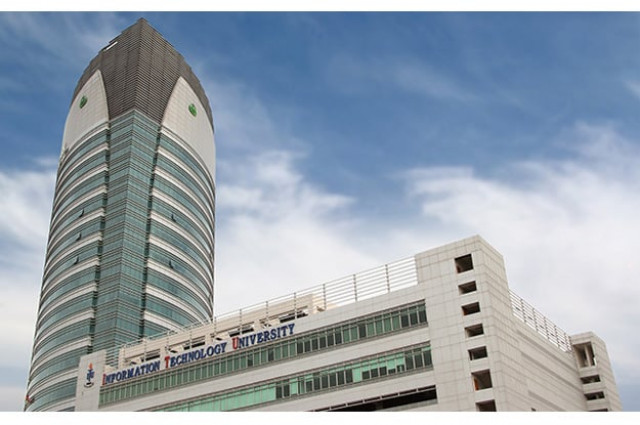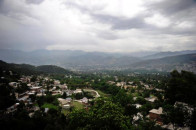New vision: ‘How can we get Afkar-i-Taza if we do not interact?’
The three-day festival features 40 speakers from Pakistan and abroad

The three-day festival features 40 speakers from Pakistan and abroad. PHOTO: ITU.EDU.PK
The Centre for Governance and Public Policy at the Information Technology University, Punjab, has organised Afkar-i-Taza, a festival designed along the lines of literary festivals, but featuring social sciences and humanities academics. The festival will begin on Friday (April 1) and will end on Sunday (April 3).
The festival’s name, Afkar-i-Taza (new thoughts), comes from Allama Iqbal’s poem Takhliq. The experts will discuss a variety of issues including politics, art and culture in 40 discussion panels.
Yaqoob Bangash, one of the organisers, says the idea was to provide space to academics to interact with each other and with the public. Most literary festivals in the country do not follow this pattern, he says. The festival will feature 40 academics from several countries and scholars from various universities in Lahore.
Bangash says this will facilitate dialogue between academics in the city as well. “How can we ever hope to have Afkar-i-Taza if we do not interact?”
Most people believe that academia is esoteric and therefore inaccessible. “So we decided to pair them up with commentators to make the conversations more accessible.” The opening address will be delivered by Adviser to the Chief Minister Azmi Haq and ITU’s Acting Vice Chancellor Zaheer Sarwar. The sessions are mostly about regional political and cultural issues and important problems such as terrorism in an academic and a more nuanced manner. A session titled Are Muslims Violent will be an in-depth discussion on a question asked often in the wake of growing terrorism in the Muslim world. The speakers at the session are M Steven Fish, a professor of Columbia University, writer Dr Ayesha Siddiqa and LUMS Professor Muhammad Waseem.
Fish and Pervez Hoodbhoy will take the discussion forward in another session, Explaining Brussels. Ali Usman Qasmi from LUMS and columnist Ayaz Amir will discuss Religion and State in the aftermath of the terrorist attack in Lahore. They will be joined by Farzana Sheikh of Chatham House. The future of the SAARC will be discussed by Senator Sherry Rehman with academics from Sri Lanka and TV presenter Fawad Chaudhry.
Sessions on the first day will start in the evening. One of the opening-day sessions is on Women’s Rights in South Asia and the International Politics of Gender in the region. The speaker for the sessions Anna-Maria Misra, is a fellow at Keble College, Oxford University. She is a historian and has studied colonial and modern politics in India extensively. Afiya Shehrbano Zia, an academic from University of Toronto, will talk about faith-based challenges to the women’s movement in Pakistan.
In a session on Saturday, academic and former High Court judge, Justice Nasira Iqbal, will discuss the issue of honour killing in the country.
The festival includes discussions on a wide range of issues relating to education. There will be sessions on teaching history and addressing the question of early education in Punjabi. Researchers and scholars will also discuss Pakistan’s Mughal past and the preservation of heritage.
Other prominent speakers at the festival are Najam Sethi, Ejaz Haider, Nadeem F Paracha and Justice Syed Mansoor Ali Shah.
Published in The Express Tribune, March 31st, 2016.



















COMMENTS
Comments are moderated and generally will be posted if they are on-topic and not abusive.
For more information, please see our Comments FAQ